Dental Implants – Albuquerque, NM
Permanently Restore Your Smile

Dental implants are known as the “gold standard” for tooth replacement. Superior to their counterparts (i.e., dental bridge and dentures), they are surgically placed in the jawbone and present benefits that cannot be attained by other solutions, such as permanence, functionality, and longevity. Whether you’re missing one, multiple, or all your teeth, Dr. Keanna can determine your eligibility for dental implant placement and refer you to a local specialist before restoring your smile to a healthier state. To discover whether you’re a candidate for dental implants, contact us today.
Why Choose Natural Dental Services for Dental Implants?
- Work With Oral Surgeons and Periodontists for Implant Placement
- Titanium, Zirconia, and Ceramic Materials Used
- We Accept Most Dental Insurance Plans
What are Dental Implants?
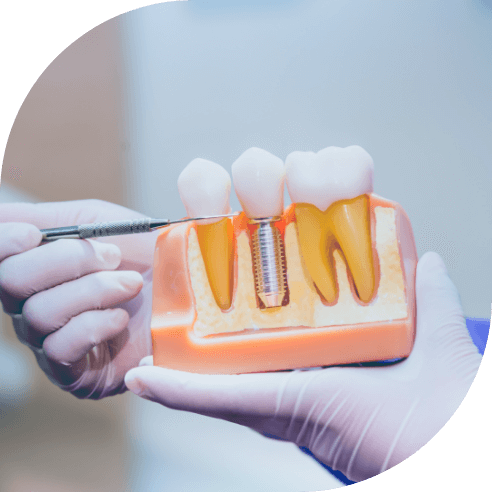
Often made of titanium, zirconia, and ceramic, dental implants are tooth replacements that mimic the root-to-crown tooth structure. Placed in the jawbone, the bone and implant fuse to create a solid foundation for your new smile. Unlike traditional dentures and dental bridges that require frequent replacement and adjustments, dental implants can last 30 years or longer and restore your bite force and chewing power to allow for the consumption of a healthier, more nutrient-rich diet.
The 4 Step Dental Implant Process
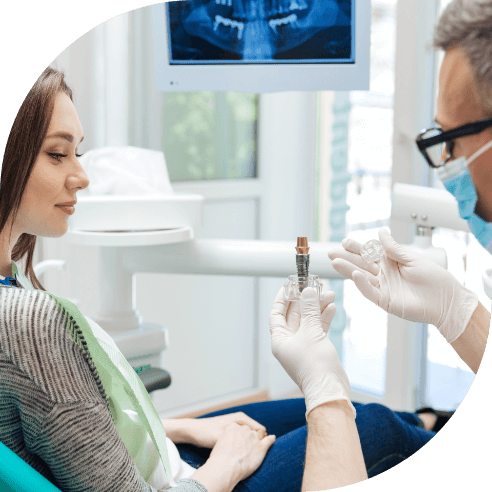
Getting dental implants is a multi-step process that requires patience, as it usually spans several months. Although it requires more time than dentures or dental bridges, the benefits you’ll receive are well worth the investment. Our team is dedicated to helping you achieve a complete and fully functional smile, which is why Dr. Keanna collaborates with local oral surgeons and periodontists to ensure your implants are properly placed. While every case is different, the same basic process is followed for every patient: initial consultation, dental implant surgery, osseointegration, and delivery of the final restoration.
Initial Dental Implant Consultation

During this first appointment, you will meet with Dr. Keanna to learn more about the road in front of you. He will examine your mouth and ask you some questions about your habits and lifestyle in order to determine whether dental implants are a good fit for you. He will also determine whether you might require any preliminary treatments before you move forward with tooth replacement.
If you have any questions about dental implants, your consultation is the time to ask! Our team wants you to feel well-informed before you commit to anything.
Dental Implant Surgery

To ensure that you get the best possible care during every stage of your treatment journey, Dr. Keanna will refer you to a local specialist so you can undergo your implant placement surgery. The procedure itself is pretty straightforward. Your mouth will be numbed, and you may be sedated. Then, your surgeon will carefully place the implants into your jawbone at precise, pre-planned positions. Then, you can go home and start your recovery process. Most patients are able to go back to work within a few days of their procedure.
Dental Implant Osseointegration & Abutment Placement

After your implants are placed in your jawbone, something called osseointegration will take place. This is the biological process that allows your bone to form a strong bond with your implants. Basically, they will fuse together. This process usually requires 3 – 4 months.
After successful osseointegration has occurred, you might need to undergo a second surgery. The tops of your implants will be exposed, and healing caps will be placed on them. Later, the healing caps will be replaced by abutments (small connector pieces that will keep your new teeth in place). In some cases, healing caps and/or abutments are placed immediately after the initial implant surgery, so this second procedure is not always necessary.
Delivery of Dental Implant Restorations

When you are ready to receive your beautiful new teeth, our team will take detailed impressions of your mouth, and Dr. Keanna will design your restoration (crown, bridge, or denture). He will coordinate with a trustworthy dental laboratory as they fabricate your restoration out of high-quality materials. Its shape, size, and color will all be customized for your unique smile. When it is ready, Dr. Keanna will verify that it meets his expectations before he attaches it to your implants. Then, you can go and start to enjoy the many benefits of implant-supported tooth replacement.
Benefits of Dental Implants

When considering how you plan to replace your missing teeth, you can count on Dr. Keanna to discuss many of the great benefits that come with dental implants, such as:
- A smile that can last 30 years or longer with proper care and maintenance. This is vastly different than dentures or dental bridges that only have a lifespan of 5-10 years.
- Eating your favorite foods that don’t leave you worrying about your prosthetic slipping or falling out.
- Easy maintenance that doesn’t require unique cleaning supplies. Instead, you can clean and brush your teeth like normal and continue to see your dentist for regular dental checkups and cleanings.
- Improved jawbone stimulation and the reduced risk for facial sagging or collapse, which are often caused by tooth loss and traditional dentures or dental bridges.
Who Dental Implants Can Help

It is believed most adults are eligible to receive dental implants. However, before any additional steps are taken, Dr. Keanna must conduct an initial consultation to evaluate your oral and overall health as well as your jawbone density. Based on his findings, he can recommend appropriate preliminary treatments (i.e., bone grafting, periodontal therapy, tooth extraction) as well as how many dental implants are needed and the type of restoration to fully restore your smile.
Missing One Tooth
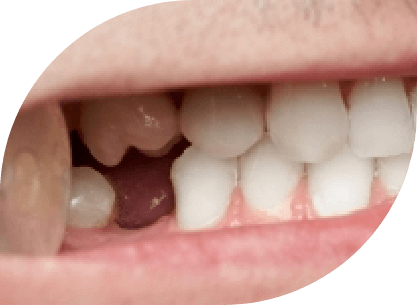
Millions of Americans are missing at least one tooth. If you are one of them and have difficulty eating and speaking, a single dental implant may be for you. By placing the implant post into the socket, it will fuse to the bone and support your customized dental crown.
Missing Multiple Teeth
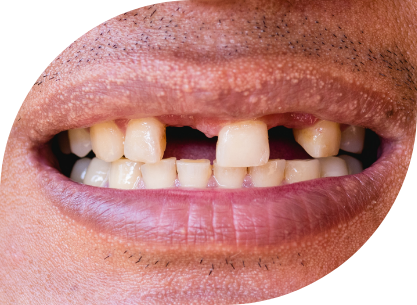
If you are missing multiple teeth along an arch, we can create an implant bridge by fusing two or more dental crowns. Instead of using healthy abutment teeth as anchors, we’ll place two implant posts into the exterior sockets while the bridge will be secured to restore your smile.
Missing All of Your Teeth
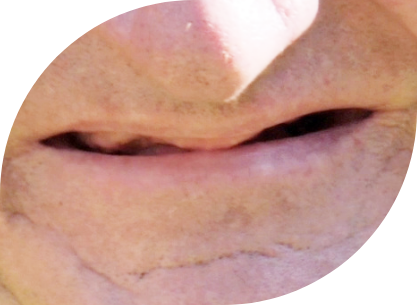
Missing an entire arch of teeth shouldn’t cause you to settle for traditional dentures. Implant dentures are an alternative option that requires between four and six dental implants. Once in place, our team will place a full denture on top of your implants for greater stability and functionality.
Understanding the Cost of Dental Implants

The cost of dental implants is different for every patient. Only until you see us for an initial consultation will you have a clear understanding of how much you can expect to pay. Although dental insurance is unlikely to cover much of the cost (if any), we are happy to file insurance claims for you to be reimbursed by your dental insurance.
Maintaining & Caring for Your Dental Implants

After your dental implants are in place, you can look forward to many years of reliable dental function and confident smiles. In fact, your new teeth might last throughout your lifetime! However, they can only live up to their potential if you take good care of them. Here are some practical tips to keep your dental implants in good shape for the long haul:
Make Oral Hygiene a Priority

Even though dental implants cannot get cavities, the tissue around them remains vulnerable to dangerous infections. Therefore, it is important that you stick to excellent oral hygiene habits that fight the proliferation of harmful bacteria. You should:
- Brush your teeth twice a day. Use a soft brush and a minimally abrasive toothpaste.
- Gently clean your gumline with floss or a water flosser at least once a day.
- Drink plenty of water to encourage saliva production and rinse away food particles.
Eat a Healthy Diet

Dental implants are strong enough to stand up to virtually any food. However, just like with natural teeth, you should still exercise good judgement when deciding what to eat.
- Try to center your diet on nutrient-dense foods that support oral and overall health. For example, you should make sure you get enough calcium, vitamin D, and vitamin C.
- Limit your intake of extremely hard, sticky, or sugary foods.
- Do not overindulge in alcoholic beverages.
Break Bad Habits

Some bad habits that could adversely affect your dental implants include:
- Smoking greatly increases the risk of dental implant failure, so you should make every effort to quit.
- Biting on hard objects. Chewing on pen caps, ice, or fingernails could damage your implant restorations.
- Using your teeth as tools. You should never use your teeth to open packages or carry out other tasks that they are not designed for.
Protect Your Dental Implants
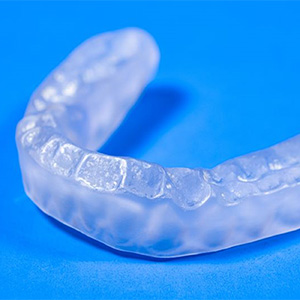
Depending on your circumstances, you might need one or both of the following types of mouthguards:
- A nightguard for bruxism. If you tend to grind and clench your teeth at night, a custom mouthguard can prevent your upper and lower teeth from harming one another.
- A sports mouthguard. An accident during a sports game could seriously damage your dental implants. A custom mouthguard can greatly reduce the risk of oral injuries.
Schedule Regular Dental Checkups

Even if you no longer have any of your natural teeth, you should still make it a habit to attend a dental checkup every six months. During these appointments, our team will examine your dental implants and look for any signs of infection or other problems. The earlier such issues are caught, the easier they are to treat. Additionally, we can remove your implant restorations in order to thoroughly clean your abutments and the surrounding areas.
Dental Implant FAQs
How Long Do Dental Implants Last?
Dental implants typically last several times longer than traditional methods of tooth replacement. In fact, they have the potential to last a lifetime! However, they can only live up to that potential if they receive appropriate care. For example, thorough oral hygiene is essential if you want to prevent infections that could cause the implants to fail. Regular dental exams, smart dietary choices, and precautions against physical trauma can also help your dental implants to stand the test of time.
Does Getting Dental Implants Hurt?
Dr. Keanna will refer you to a trustworthy specialist, who will do what they can to make you comfortable during your implant placement surgery. For example, they may both numb your mouth and provide sedation. After the surgery, some soreness and bleeding are normal. Usually, post-op side effects wear off within a week or so, and most patients feel well enough to return to work within a few days of their procedure. You will receive detailed instructions to make your recovery period as comfortable as possible.
What Can Cause Dental Implants to Fail?
Dental implant failure is quite rare. When it does occur, it is often due to a condition known as peri-implantitis, which is an infection in the tissue around an implant. It can cause so much damage that the jawbone and gums are no longer able to support a prosthetic tooth root. In many cases, missteps in oral hygiene lead to the development of peri-implantitis.
Another possible cause of implant failure is unsuccessful osseointegration. In other words, the implant never forms a strong bond with the surrounding bone. This may occur due to pre-existing medical conditions.
Dr. Keanna and our team will work with you to ensure that your risk of dental implant failure is as low as possible.
Can I Get Dental Implants if I Smoke?
Smoking drastically increases the risk of dental implant failure, so we strongly recommend that you kick the habit before pursuing implant treatment. With that being said, smoking is not an automatic contraindication for dental implants. Many factors, including your overall health, the state of your mouth, and other lifestyle habits, will help to determine whether implants are right for you.
If you do not quit smoking altogether, you should at least abstain for the two weeks before and the three months after your surgery.
